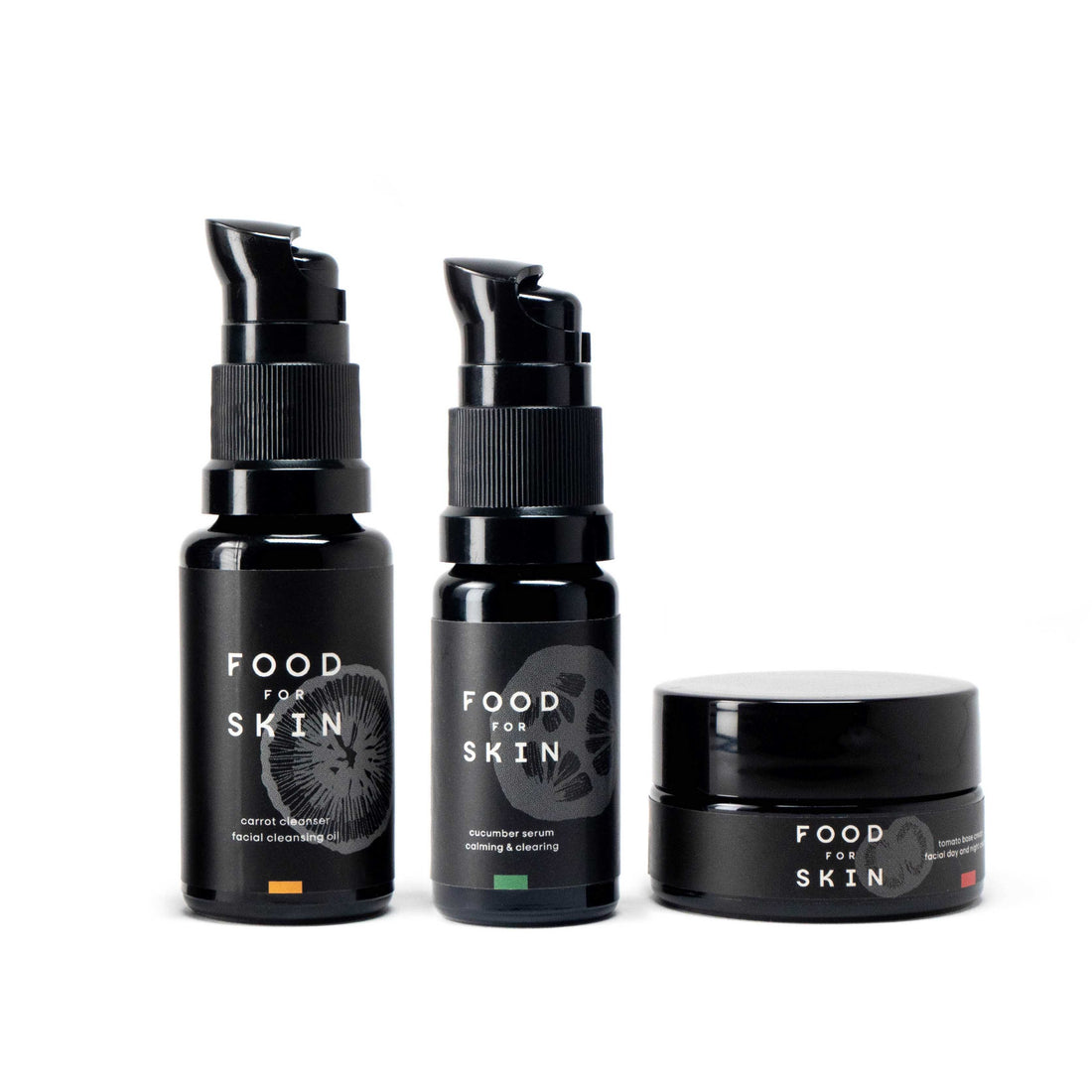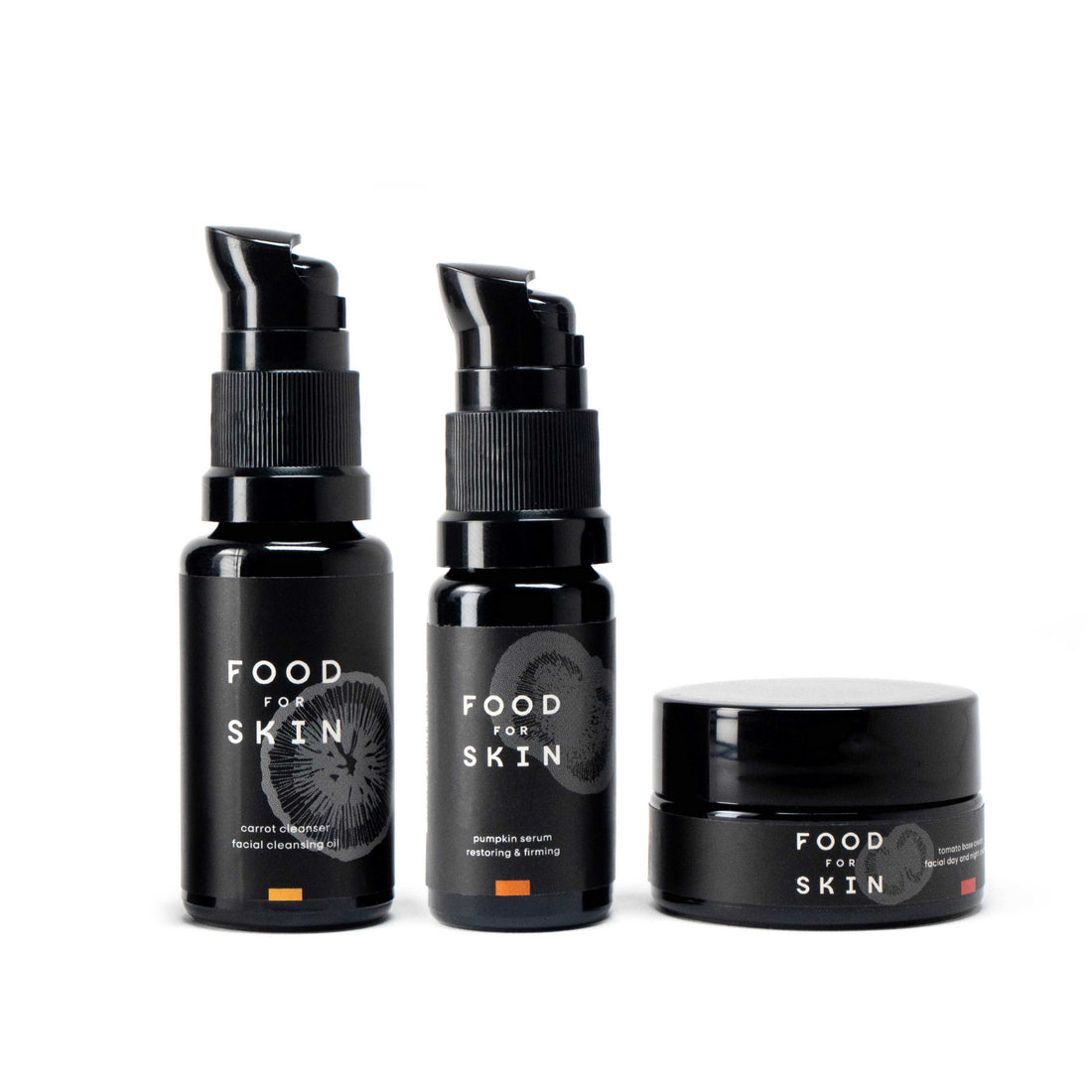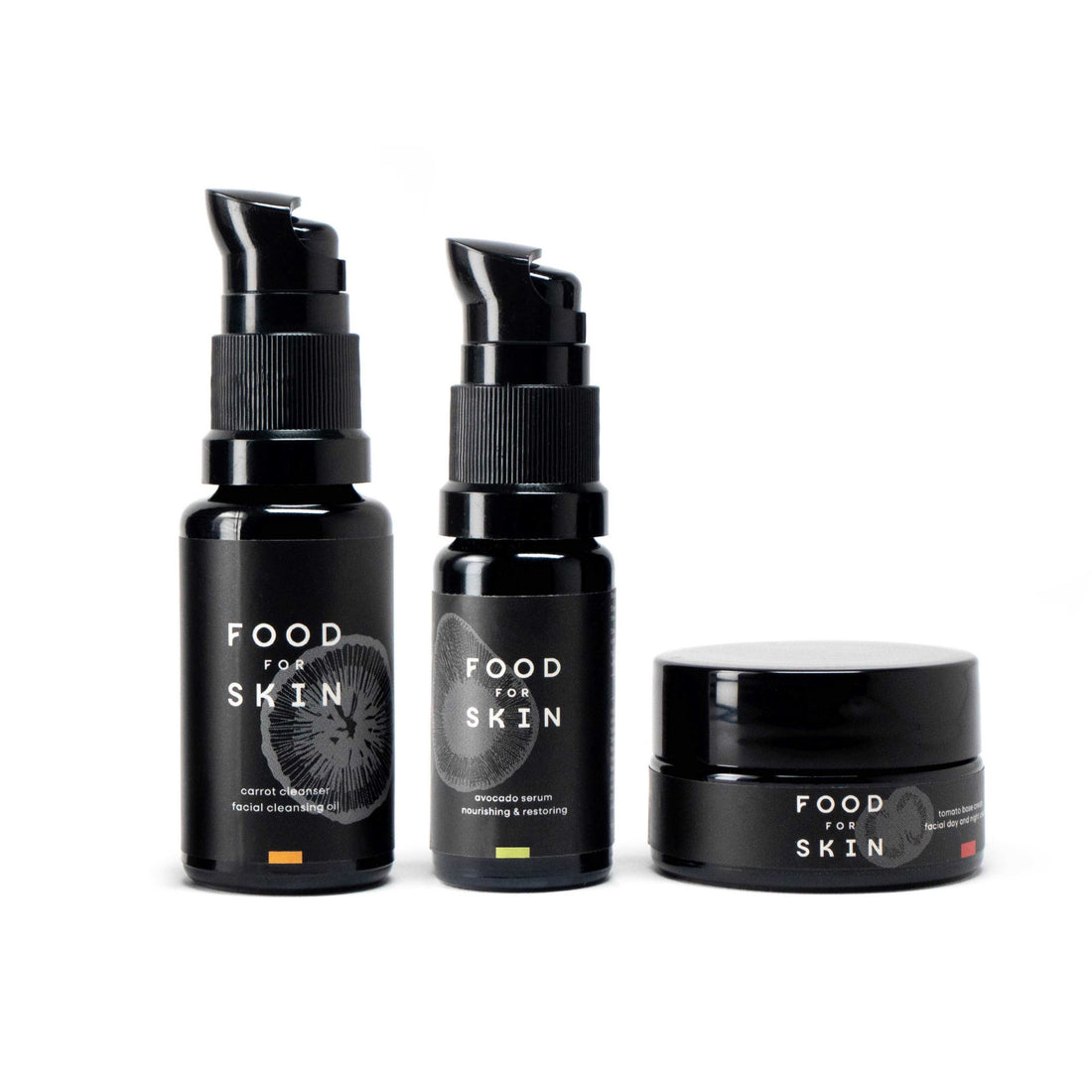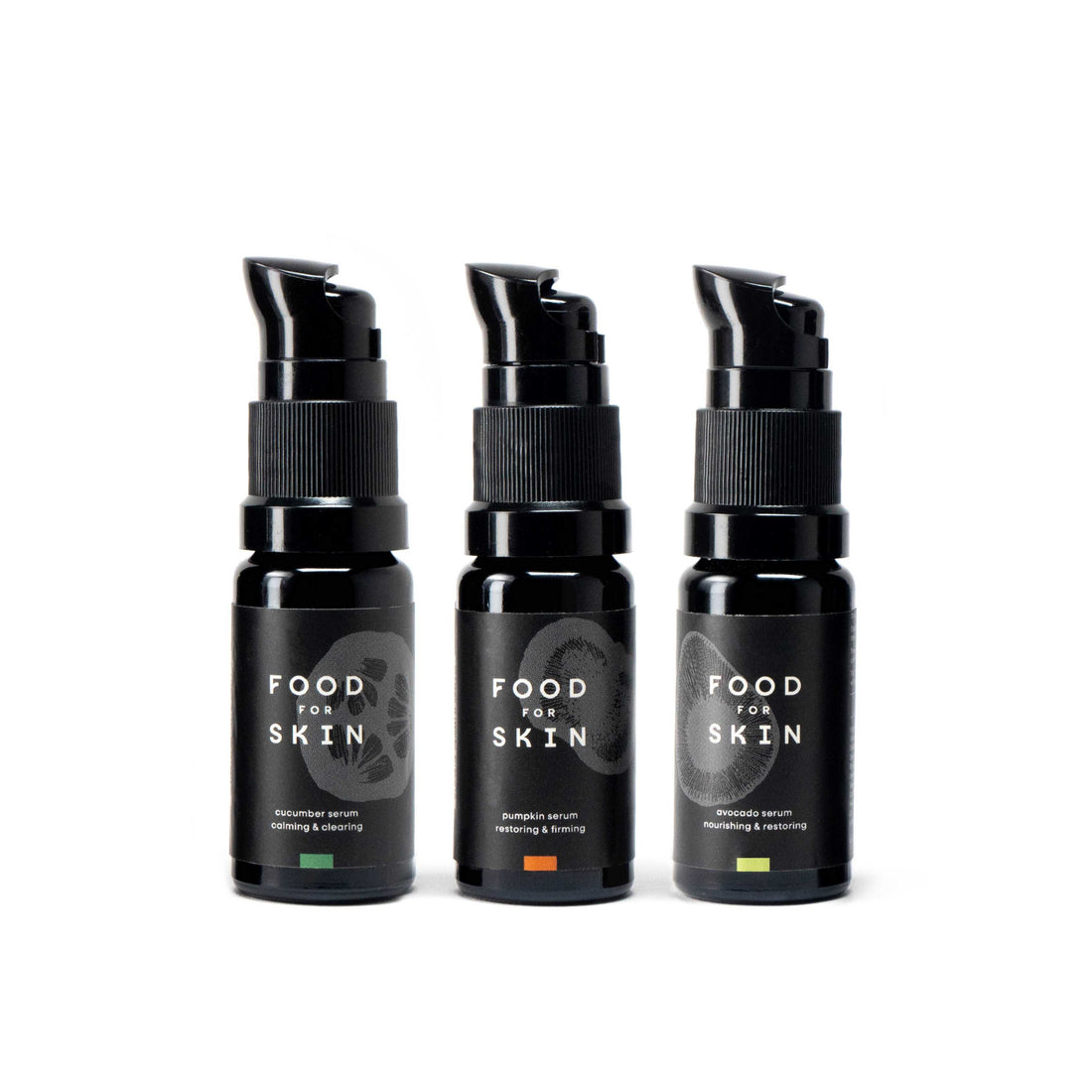Pfffff… you read, hear and see so much about what is or is not good for the skin. Can you still see the forest for the trees?
Read below more about the myths and facts about all kinds of tips & tricks that are floating around the web. We have done our homework as best as we could, but if you have any additional information or tips, we would like to hear from you via hello@foodforskin.care.
Collagen powder myth or fact
You can no longer avoid collagen commercials. But does collagen really work this well for the skin? Collagen is naturally present in your skin and ensures that your skin remains elastic, but is also important for bones, tendons, elastic cartilage, connective tissue, muscles, organs and veins. From about the age of 40, collagen production in humans decreases by 25%. From the age of 60, this is 50%.
Most studies show that by using collagen supplements (from within!), the natural production of collagen in the skin can be stimulated, making the skin firmer and smoother. However, there are also studies that contradict this. Unfortunately, we do not have a clear answer to whether it is fact or fiction.
The best tested collagen powders come from bovine collagen or fish collagen with as few fillers or other ingredients as possible. Primal bone broth (or homemade) contributes to an addition of minerals such as iron and zinc (bone marrow) and strengthens your resistance.
Collagen is extracted from the skin and bones of animals. Food for Skin would therefore never use collagen in its products, because we do not use products from animals.
Plant-based collagen can only be used as a booster and stimulates the production of collagen, but cannot replace animal collagen 1 on 1.
It is not possible to administer collagen from outside, i.e. via creams etc. The collagen from a cream cannot penetrate so deeply into the skin. Watch the episode of the Keuringsdienst van Waarden where this is explained. It is therefore a myth that collagen can be administered from outside.
So is collagen a myth or a fact? Collagen cannot be applied directly to the skin from the outside, but according to most studies it can be absorbed into the skin when taken as a supplement. The potency of taking collagen supplements depends on the quality and quantity of collagen in the product. In addition, results can vary from person to person. It is always advisable to consult a doctor or dermatologist before adding a new supplement to your routine.
Cosmetics facts and myths
Myth: More skin care is better
Many people think that the more they work on their skin, the better it is. This is not true. It is important to have a skin care routine that suits your skin needs, but it is not necessary to use many different products. This can even dry out and irritate your skin, but also pamper it too much, making your skin lazy. The skin becomes addicted to the products you apply daily. As soon as you stop, your skin will react to it. With the Food for Skin philosophy, we choose to maintain the natural skin flora, because we believe that the skin itself has to do the work to really become strong from within. With all the dirt in the air, your skin can use a little support and you do that by cleansing and protecting with the right and mild products.
Myth: Expensive products are better
It is a common misconception that expensive products are by definition better than cheaper products. The price does not mean much for most brands. It is more important to look at the ingredients in a product and how it is produced, rather than the price.
Food for Skin only uses active ingredients in our products (no water/aqua or other fillers), is locally produced (which is strangely enough many times more expensive) with sustainably obtained ingredients (which is unfortunately also more expensive than non-organic, non-local ingredients). Food for Skin is certainly not cheap because we consciously choose quality products with the smallest possible impact. You pay for that. Fortunately, our skincare is highly concentrated and contains only essential, nourishing ingredients. That is why you only need a little and the products last a long time.
Many brands spend 10x more on marketing than the total production costs. Or margins are simply much higher because the brand is targeting the 'premium segment'. Check the claims, check the quality marks, check the ingredients (e.g. with an app), to see if it's worth the money.
Fact: A good pH value protects
A good pH value (between 4.3 and 5.6) of the skin protects you from viruses and unwanted intruders. A skin with a high pH value is drier, duller and more easily irritated. A pH value that is too low affects the barrier function and bacteria have a greater chance of striking. Your skin becomes irritated and oversensitive and acne and eczema are then common. A good pH value keeps the natural skin flora in balance, protects against micro-organisms and the loss of moisture from the skin.
We are therefore fans of triggering and affecting the skin barrier as little as possible. Our products are very mild, help the skin a bit but above all ensure that the skin itself continues to work. Read more about our skin philosophy? Click here .
Myth: All natural skin care is good
Huh, fable?! And that from Food for Skin? Yes! Because of course unfortunately does not automatically mean that it is a well-functioning product. It depends on the concentration and the composition. Of course also does not mean that you cannot get an allergic reaction from it. But, the chance of irritation or a reaction is many times smaller than for synthetic perfume.
Hydrating facts and myths
Myth: Cream can add moisture
It is not possible to introduce moisture from the outside. This is because water, creams and serums cannot penetrate that deeply into those skin layers. You can ensure that the skin moisture is better retained in the skin by placing a thin layer on the skin with a cream. This layer then prevents moisture from evaporating from the skin. When we talk about moisturizing creams, we actually mean 'moisture-retaining' and not 'moisturizing'.
Fact: Your skin becomes strong from sufficient moisture from within
Yes! Moisturizing from the outside is not possible, but drinking a lot of water ensures that you nourish your skin from the inside. You can also drink low-tannin tea to flush your body and help remove toxins.









